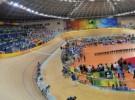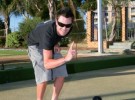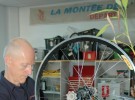“We lost because we failed to renew. We mismanaged generational change. We did not arrange the leadership transition.”
Former Treasurer and deputy leader of the Liberal Party, Peter Costello, writing about the November 2007 Federal Election in “The Costello Memoirs”
From zero to almost heroes in Beijing, the Danes’ team pursuit success was in part, the product of seven high-altitude training camps in the last two years. But their trainer, former Australian road coach Heiko Salzwedel, says there was one, far more important thing they had in spades – which, judging from the results, the Aussies – who went in as defending champions – clearly did not.
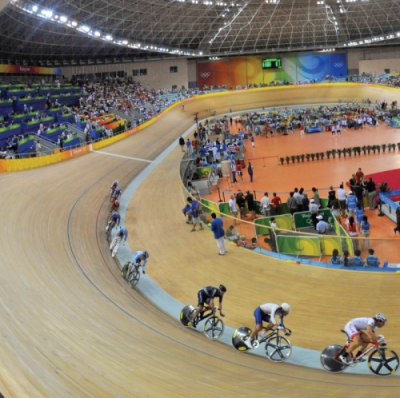
July Late 1990’s…
As the battle was being waged among the Tour de France contenders in the Pyrénées, another fight of the two-wheeled variety was going on, a continent away in a mist-shrouded Chinese province and in territory twice as high as that found in France: A battle for oxygen. For many, it was their maiden voyage to the Qinghai Lake province; excluding the Xinjiang and Tibetan Autonomous Regions, the westernmost area of China’s mainland. And even before the nine day stage race began in Xining, the provincial capital situated 2,264 metres above sea level, there was an air of caution – the majority had only one full day to acclimatise to this unfamiliar milieu. Yet there was one group more than comfortable than most with the oxygen-deprived environment they found themselves in. Led by one of the cycling world’s most respected trainers, Danish national coach Heiko Salzwedel, these seven riders were completely in their element.
After all, as quadruple stage winner Alex Rasmussen told me after he captured the 3.8-kilometre opening prologue at a preternatural 56.106 kph average, beating the next-best mark by more than 10 seconds, this visit marked the Danes’ seventh visit to high-altitude in the past 24 months. Come Beijing, that was at least six times more than any other team set on gold in the 4,000 metre teams pursuit, according to my research.
“the Brits went supersonic, recording a remarkable new world-best of 3:53.314 seconds”
The deferential Salzwedel – once head road cycling coach at the Australian Institute of Sport in the 1990s, having trained the likes of McEwen, Vogels and Jonker to name just a few – and arguably Aussie cycling’s biggest loss, has long been a proponent of altitude training. “When I was East German pursuit coach, we had this altitude concept and we implemented it in quite a successful way,” he said. His lack of braggadocio understated the country’s cycling success by some margin. “I was national pursuit coach in Germany for four years and our worst place was a silver medal (at the world championships), when I was coach,” Salzwedel recalled. His German accent is as thick as ever, even though he’s hardly been home the past two decades, having trained the Aussies, British, Chinese and now the Danes during this time. “When I came to Australia, the Australians adapted – not only the Australian road team where I was national road coach, the Australian track team (run by Charlie Walsh) also. They adapted to this altitude concept and you remember the Australian pursuit team in those days was the strongest in the world at the time. They’ve moved a bit away from that now, the Australians these days,” added Salzwedel. I don’t know the reason they had for this, but altitude worked quite successfully in the nineties with the Aussies and it has worked quite successfully with the Danish, the last few years.” With reference to the latter in the four kilometre team pursuit, the Danes improved their time from four minutes 23 seconds in 2002 to three minutes 56.831 seconds in Beijing. Results which appear to speak for themselves.
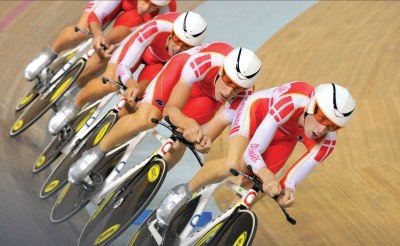 However, in defence of the current coaching fraternity in Oz, spearheaded by Senior Track Coach Martin Barras and Track Endurance Coach Ian McKenzie, while plenty of scientific data exists on living and training up high, findings gathered by sports doctors and trainers at various institutes of sport around the world and more importantly, its implementation, is sometimes conflicting. On an elite athlete’s return to sea-level, for example, some display marked improvement in their VO2 Max (one’s maximum oxygen-carrying capacity, measured in ml/kg/min), but only for a short period afterwards. The ideal timeframe to compete appears to be no more than two to three weeks, while others show little to no change.
However, in defence of the current coaching fraternity in Oz, spearheaded by Senior Track Coach Martin Barras and Track Endurance Coach Ian McKenzie, while plenty of scientific data exists on living and training up high, findings gathered by sports doctors and trainers at various institutes of sport around the world and more importantly, its implementation, is sometimes conflicting. On an elite athlete’s return to sea-level, for example, some display marked improvement in their VO2 Max (one’s maximum oxygen-carrying capacity, measured in ml/kg/min), but only for a short period afterwards. The ideal timeframe to compete appears to be no more than two to three weeks, while others show little to no change.
And so the testing continues. Only in July last year, the AIS conducted a little-publicised altitude training camp in northern Italy dubbed “The Stelvio Project”. It was so-named because 18 of Australia’s top road, track, and cross-country cyclists including senior AIS sports scientist Dr. David Martin, had based themselves at the top of the heavily switchbacked 2,760 metre high Stelvio Pass. The study was designed to document the affects of three weeks at high altitude. Training consisted of five- to- seven-hour training rides involving several mountain passes per day, including daily ascents of the Passo Stelvio.
Back in the Southern Highlands of New South Wales, SouthAustralia.com-AIS sport director Rodney McGee (Brad’s older brother), was leading a similar training group at sea level. This was the placebo, to gauge if the primary benefit was due to altitude or more simply, a controlled training environment, away from the distractions of daily life.
Both groups experienced mixed results. Some of the Italian based athletes from the Stelvio Project did experience gains in their oxygen carrying capacity, while others did not. The same results were reported from Rod McGee’s sea-level-based entourage. It’s therefore unsurprising to hear that Brian Stephens, National Under-23 men’s road coach and SA.com-AIS team manager, isn’t convinced that training up high defini tively increases your VO2 Max. He nevertheless likes the idea of his young guns training in the Italian Dolomites and has done so for many years. For him, it’s more about escaping the hustle and bustle than improving the lung-muscle, so to speak.
It’s hard to argue with the facts Salzwedel presented before me a month before their Olympic date with destiny. To have gone from the laughing stock to second-best in the world, and all within six years, is nothing short of remarkable. Asked why the Australian team’s pursuit squad has struggled ever since their gold-medal ride in Athens, Salzwedel wouldn’t be drawn into a direct answer. Many observers have said it’s simply an issue of money. From 2003 to the London 2012 Games, the Poms intend to pour more than £1 billion into their Olympic Podium Program. Contrast that with the Aussies, whose Australian Sports Commission has barely increased its elite funding in line with inflation since the Sydney Olympics.
“Certainly, the British way is the way to go,” admitted Salzwedel. “They have hired the best specialists in each area. They have special strength and conditioning coaches, they have special weight-lifting coaches who are working in all areas. Not only with the sprinters, they are also working with the track endurance squad and they have specialists for tactics. From their point of view, this is certainly the leading way, but,” he noted, “it’s an expensive way, and a lot of countries cannot afford this. One example is Denmark. I’m virtually the strength and conditioning coach. I’m also the tactical coach, I’m the endurance coach and I’m the directeur-sportif. So from that point of view, I’m more or less a one-man band, with some very committed staff around me, but we are a very small group.”
Salzwedel also said he’s got a great rapport with all his riders involved with professional trade teams, where most spend their season and when it comes to taking them out for specific training or rest, he has their full support. Can the same be said of Bradley McGee and Graeme Brown? No doubt, the nature of training for a sub-four-minute event has some negative effects on one’s endurance. Get back to 200 kilometreplus races too soon and riders will most likely underperform all summer. Consequently this year, Salzwedel asked all his riders’ trade team managers to grant a three week transition period following pursuit-specific training to rebuild their foundation and after attending their first stage race back, release them to their managers and the swing of road racing. “That worked fantastically,” he said.
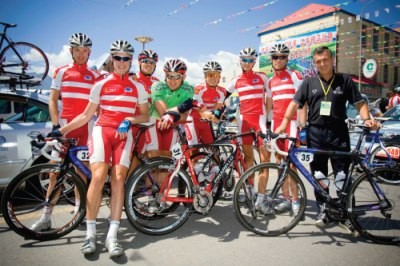 Four weeks out from the Danes’ date with destiny on the boards of Beijing’s Laoshan velodrome, Salzwedel’s prediction was uncannily accurate: “On paper, when you look purely at results, theoretically, the final should be Denmark against Great Britain. I think the team that wants to win the Olympic tournament has to do… ” Not wanting to sound full of himself, he hesitated a moment before completing his line of thought. “…a new world record. I think the competition will be that strong. I expect the Kiwis will come out strong and I’m also expecting the Australians to get better. They’ve been struggling the last few years, but with their bronze medal in Manchester (the venue of last year’s world track championships) they’ve already shown that they’re back on track. I’m not sure if we can close that gap between Denmark and Australia or between Great Britain and Australia. It’s still quite a big gap.
Four weeks out from the Danes’ date with destiny on the boards of Beijing’s Laoshan velodrome, Salzwedel’s prediction was uncannily accurate: “On paper, when you look purely at results, theoretically, the final should be Denmark against Great Britain. I think the team that wants to win the Olympic tournament has to do… ” Not wanting to sound full of himself, he hesitated a moment before completing his line of thought. “…a new world record. I think the competition will be that strong. I expect the Kiwis will come out strong and I’m also expecting the Australians to get better. They’ve been struggling the last few years, but with their bronze medal in Manchester (the venue of last year’s world track championships) they’ve already shown that they’re back on track. I’m not sure if we can close that gap between Denmark and Australia or between Great Britain and Australia. It’s still quite a big gap.
But I hope we can retain some of it. It will be very competitive.”
And So, the Olympics
The Danes’ meticulous preparation continued all the way to that remarkable Monday evening at the Laoshan velodrome. Their entire tapering period was conducted back in Denmark to avoid any distraction, resourcing requirements or safety concerns, including the much talked about city smog that goes hand-in-hand in a developing city of 16 million bodies where, gazing from above, there appears to be more buildings under construction than completed.
In the first round after qualifying, the Danish quartet bettered their previous best mark at the March track worlds. Their 3:56.831 seconds moving them into the gold medal play-off against mighty Team GB the following night. However, another outcome Salzwedel also accurately forecasted was that with such a young outfit all riding their first Olympic Games and in a final no less, it was possible they would not perform to their full potential. “I prefer to go with experienced riders to the Olympic Games,” began his words of wisdom, “and not with a young group such as this. This is a bit of a disadvantage… I believe we can win gold, but it could also happen that we cannot recall the performance we are capable of.”
Indeed, the Danes, who had already witnessed Great Britain break their previous best less than 24 hours earlier, found themselves floundering in the final as nerves got the better of them, not even breaking the four minute barrier as the Brits went supersonic, recording a remarkable new world-best of 3:53.314 seconds. Still, silver against the very best in the world, who enjoy the best coaching, the best support staff, the best bikes, and by some margin, the biggest budget against a man who says he’s “more or less a one-man band”, is a feat worthy of high praise. Possibly the highest. It’s also worth asking, ‘What are they doing that we aren’t? Is training at altitude the key?’ “I wouldn’t say the Danish team is successful because they’re doing altitude,” Salzwedel responded, “but the Danish team is successful because they’re doing a lot of things, which are leading edge in terms of training methodology, in bike development, and this is the most important thing, commitment.
“Commitment, determination, doing the hard work, having the willpower… I would say the altitude concept is icing on the cake. I can say, even working with a very enthusiastic young group of Australians in the nineties, who showed incredible commitment and incredible motivation, this (Danish) team is probably the most committed team I have worked with. “Highly motivated, highly committed, and they’re not scared to put the hard workload in. Not scared and sometimes, even, I have to pull them back, not to overdo things. And so from that point of view, I’m very lucky, I’m in a very good position at the moment.”
Pity, because right now, we could really use a guy like him… So, if the issue is not pecuniary, despite the Brits’ seemingly unfettered pool of funding, and ostensibly not coaching related, what is it, then? Where did the Australian team go so horribly wrong, where, before Anna Meares’ inspirational silver medal winning ride, we were staring at our worst performance since the 1980 Moscow Games? While these next remarks may be candid and perhaps acerbic, there isn’t a fleck of vitriol behind them. Nor are they in any way punitive. But this is the new epoch to which Australian track cycling must now raise its game. An era where no less than the best, most talented, highly driven individuals are drafted then driven to breaking point. Where they stand cheek by jowl with the best, most knowledgeable coaches, the right sports science backup, and the right programs. And we mustn’t be intransigent about it.
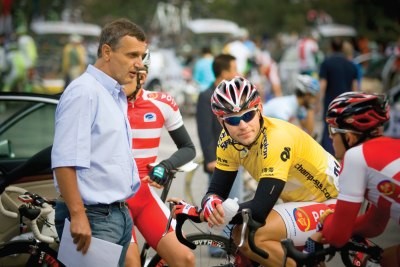 Post-Athens, our head coach Barras, who was casually removed from his position less than a month after the Beijing Games, to take on an as yet unnamed role within the AIS/ Cycling Australia High Performance Program, said he was faced with a choice: “It was a question between rebuild or repeat.” In some ways, then, our performances in the Greek Olympic city, while brilliant, emasculated our cyclists and coaches. It didn’t expose the fact that we weren’t grooming our next generation of track stars fast enough and was subsequently deleterious in our preparations for Beijing. The pummelling received in China must now be viewed as our mea culpa, Meares’ magic aside, although even she later admitted she was no match for the winner, Britain’s Victoria Pendleton. Given what transpired in Beijing, over time, cycling historians will likely view our Athens success as a Pyrrhic victory over the Poms. How could they not? Yes, the Brits were brilliant. As a whole, the greatest Olympic team to have left Mother England in fact, but they’re not indomitable. History has proven repetition leads to staidness; it’s time for rebuilding and renewal. What happened with our teams pursuit squad can therefore be extrapolated to our entire track program. And so, four years out from London 2012 and fast counting down, we must act with prudence, without selfishness, and most importantly, with haste/
Post-Athens, our head coach Barras, who was casually removed from his position less than a month after the Beijing Games, to take on an as yet unnamed role within the AIS/ Cycling Australia High Performance Program, said he was faced with a choice: “It was a question between rebuild or repeat.” In some ways, then, our performances in the Greek Olympic city, while brilliant, emasculated our cyclists and coaches. It didn’t expose the fact that we weren’t grooming our next generation of track stars fast enough and was subsequently deleterious in our preparations for Beijing. The pummelling received in China must now be viewed as our mea culpa, Meares’ magic aside, although even she later admitted she was no match for the winner, Britain’s Victoria Pendleton. Given what transpired in Beijing, over time, cycling historians will likely view our Athens success as a Pyrrhic victory over the Poms. How could they not? Yes, the Brits were brilliant. As a whole, the greatest Olympic team to have left Mother England in fact, but they’re not indomitable. History has proven repetition leads to staidness; it’s time for rebuilding and renewal. What happened with our teams pursuit squad can therefore be extrapolated to our entire track program. And so, four years out from London 2012 and fast counting down, we must act with prudence, without selfishness, and most importantly, with haste/
